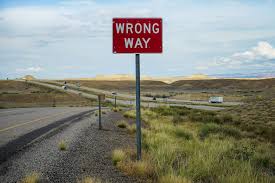商業版塊
Bartleby
巴托比專欄
A question of judgment
判斷力問題
A quality that is hard to define but important to possess
一種很難定義但是很重要的品質。
The pandemic has required many people to make difficult judgments. Politicians have had to decide which restrictions to impose on citizens’ behaviour and individuals were forced to assess how much personal risk to take. Managers, faced with tough calls like which parts of their operations to close, have not been spared.
疫情需要許多人做出艱難的判斷。政治家們必須決定對公民的行為施加哪些限制,而個人則被迫估計要承擔多少個人風險。管理者們也未能幸免,他們面臨著諸如關閉哪些業務部門這樣的艱難抉擇。
Good judgment is a quality everyone would like to have. But it is remarkably difficult to define precisely, and many people are not sure whether they personally possess it. Sir Andrew Likierman of the London Business School has spent a long time talking to leaders in a wide range of fields, from business and the army to the law and medicine, in an effort to create a framework for understanding judgment.
每個人都希望擁有良好的判斷力這樣的品質。但是很難對良好的判斷力進行準確定義,很多人也不確定自己是否擁有這種能力。倫敦商學院的安德魯·利基爾曼爵士花了很長時間與商業、軍隊、法律和醫學等多個領域的領袖交談,試圖建立一個理解判斷力的框架。

First he had to define the word. He suggests that judgment is “the combination of personal qualities with relevant knowledge and experience to form opinions and take decisions”. And he argues that, thus defined, judgment involves a process—taking in information, deciding whom and what to trust, summarising one’s personal knowledge, checking any prior beliefs or feelings, summarising the available choices and then making the decision. At each stage, decisionmakers must ask themselves questions, such as whether they have the relevant experience and expertise to make their choice, and whether the option they favour is practical.
首先他必須給這個詞下個定義。他認為,判斷力是“個人素質與相關知識以及經驗融合而成的觀點和決策。”他認為這樣下定義,判斷力包含了一個過程——獲取信息,決定信任的人和物,總結個人知識,確定優先的信念或感受,總結可用的選擇,然后做出決定。在每一個階段,決策者都必須捫心自問,比如自己是否具備做出選擇所需的相關經驗和專業知識,以及自己青睞的選擇是否切實可行。
Expertise can be useful in making judgments. But it is not the same thing. “Academics have expertise,” Sir Andrew observes. “They don’t necessarily have judgment.” People with judgment know when they are out of their depth in making a decision and typically then seek the advice of someone who has the right background and knowledge.It is, of course, possible to follow all these steps and still make the wrong choice. But Sir Andrew argues that a sensible process improves the chance of getting it right. The temptation is to look at people’s track records when assessing when they have good judgment, but luck may have played a huge part.“While good judgment is important to success,” Sir Andrew cautions, “success is not a signal that there has been good judgment.”
專業知識有助于做出判斷。但這并不是一回事。安德魯爵士評論道,“學者們擁有專業知識,但不一定擁有判斷力。”有判斷力的人知道自己在做決定時力不從心,然后通常會向有合適背景和知識的人征求建議。當然,即使你遵循了所有的步驟,仍然可能做出錯誤的選擇。但安德魯爵士認為,一個合理的步驟能夠提高做出正確選擇的概率。當評估人們是否有良好的判斷力時,人們會傾向于看他們過往的表現,但運氣可能也起了很大作用。安德魯爵士提醒到:“雖然良好的判斷力對成功至關重要,但成功并不標志著那個人擁有良好的判斷力”。
譯文由可可原創,僅供學習交流使用,未經許可請勿轉載。












